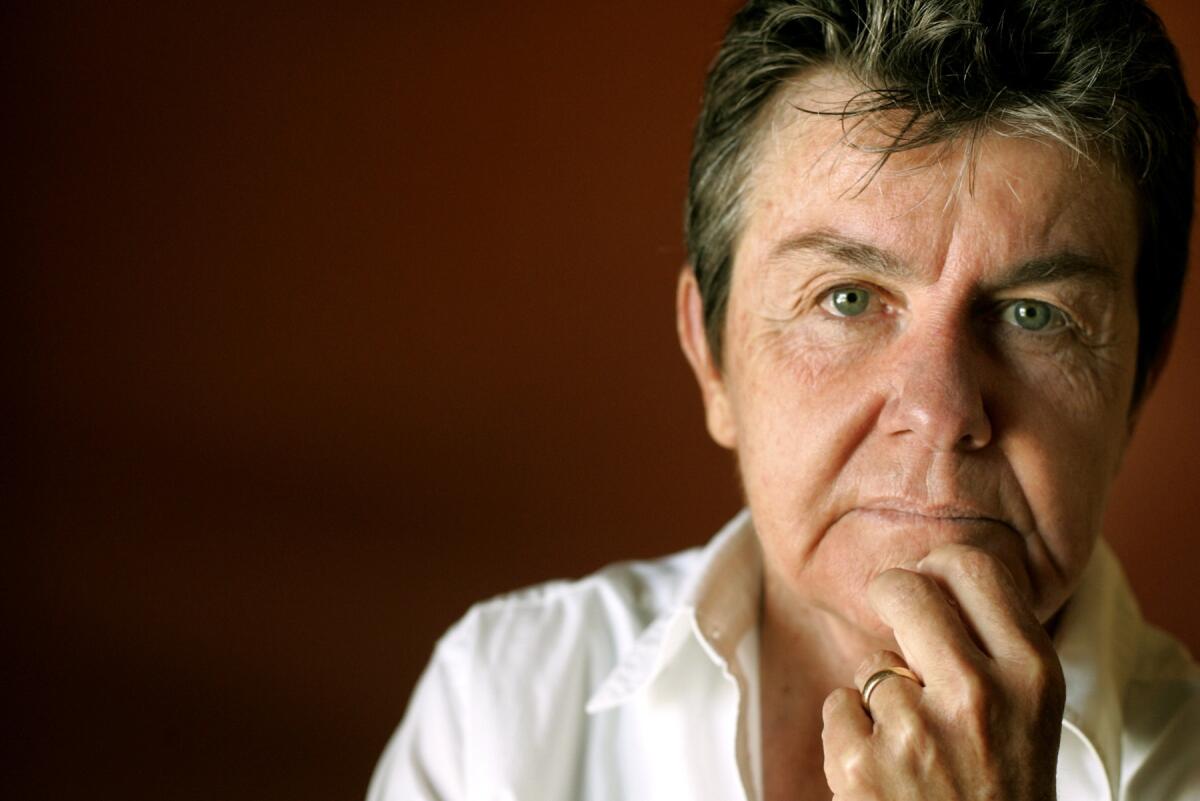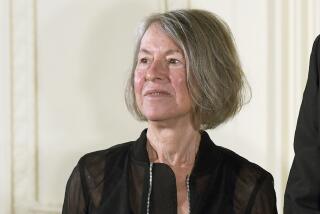Poet Kay Ryan recovering after her bicycle was hit by a car

Kay Ryan, who served as United States poet laureate from 2008 until 2010 and won the 2011 Pulitzer Prize in poetry for her collection “The Best of It: New and Selected Poems,” is in a Marin County rehabilitation hospital after having been struck by a car while riding her bicycle near her Fairfax, Calif., home on Jan. 13.
According to the Marin Independent Journal, the 68-year-old Ryan suffered “a fractured hip socket, broken ribs, one of which punctured a lung, a broken clavicle and a head injury.” She is “doing pretty well, under the circumstances, and has all of her wits about her,” reports Sydney Goldstein, founder of San Francisco’s City Arts & Lectures series, who is acting as the poet’s spokeswoman.
Ryan is a fierce and revelatory poet, a genius of concision and wordplay. A longtime community college teacher, she brings a certain working-class engagement, a practice of calling things as she seems them, to both her poetry and her public life.
She is the author of seven collections, in addition to “The Best of It” — which is a characteristically blunt way of categorizing a book of new and selected work. As she observes in “Extraordinary Lengths”: “The only justification / for extraordinary lengths / is extraordinary distances. / Yet you don’t find this / in the majority of instances.”
Here we see one of Ryan’s favorite devices, the slant rhyme, which creates a rhythmic infrastructure just below the surface of the poem. It’s sneaky in its way, seductive, a strategy for taking pleasure in the music of the language, while also attending to the meaning underneath.
And yet, that pleasure is more often than not pointed, as in “Her Politeness,” which reads: “It’s her politeness / one loathes: how she / isn’t insistent, how / she won’t impose, how / nothing’s so urgent / it won’t wait. Like / a meek guest you tolerate / she goes her way — the muse / you’d have leap at your throat, / you’d spring to obey.” Ten lines, a single extended image, and then that closing reference to the muse, which changes everything.
“People have trouble with my work,” Ryan told the Paris Review in 2008, “because they want to say it’s humorous the way Billy Collins’s poetry is humorous, and that it’s witty. But there’s something else, this cartoony thing. When I read my poems to any audience there’s a lot of laughing, but I always warn them that it’s a fairy gift and will turn scary when they get it home.”
Or, as she writes in “Cheshire”: “It’s not the cat, / it’s the smile that / lasts, toothy / and ruthless. / It’s facts like this / we like to resist — / how our parts / may lack allegiance / to the whole; / how the bonds / may be more casual / than we know; how / much of us / might vanish / and how well / some separate part / might manage.”
ALSO:
Randall Mann and the poetics of desire
A weekend of tributes to Wanda Coleman
More to Read
Sign up for our Book Club newsletter
Get the latest news, events and more from the Los Angeles Times Book Club, and help us get L.A. reading and talking.
You may occasionally receive promotional content from the Los Angeles Times.







